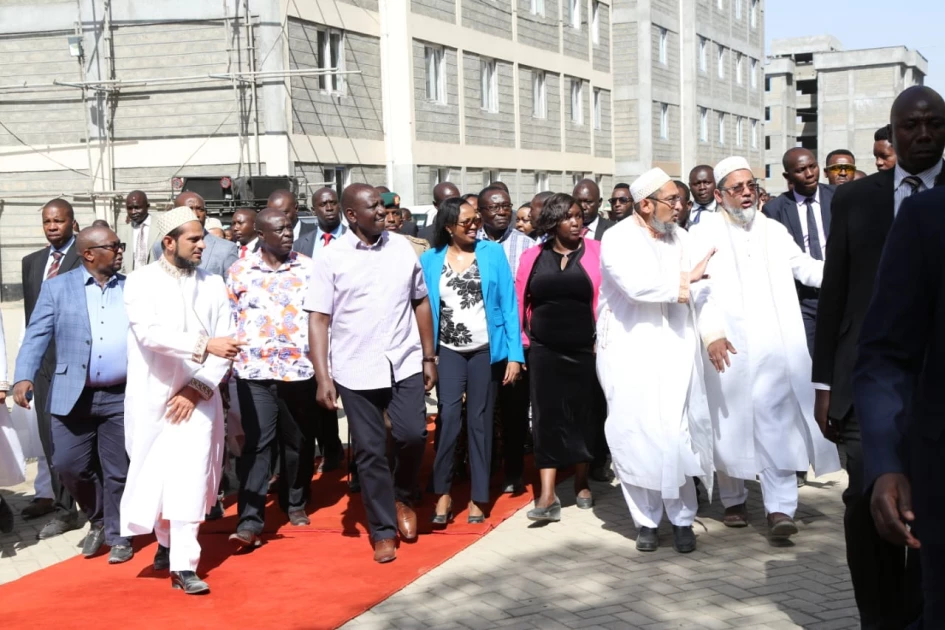Parliamentary Budget Office’s Warning: Affordable Housing May Not Benefit the Poor
The Parliamentary Budget Office has raised concerns, cautioning that a significant portion, exceeding 70 percent, of the individuals earmarked as recipients in the government’s affordable housing initiative could potentially face exclusion. This is due to their categorization as middle and low-income earners.
The Parliamentary Budget Office discovered that individuals with higher incomes stand to gain more, as 36 percent of the allocated funds for the project are designated for the development of institutional housing programs. These initiatives specifically focus on individuals earning a monthly income exceeding Ksh. 149,000.
While the initiative was presented as a means to improve the living conditions of underprivileged Kenyans by providing affordable housing and addressing the current shortage of over 2 million units, it seems that the proposal might ultimately benefit only those who are already privileged.
An examination of the Affordable Housing Bill 2023 conducted by the Parliamentary Budget Office in terms of financial and economic aspects revealed that individuals earning a gross income below Ksh.50,000 experience limited homeownership.
Although the government has categorized recipients into three groups, allocating 30% of the funds for social housing aimed at individuals with a monthly income below Ksh.20,000, another 30% for affordable housing projects targeting those with a monthly income between Ksh.20,000 and Ksh.149,000, and the remaining 36% reserved for institutional housing programs and projects aimed at individuals earning above Ksh.149,000.
The Parliamentary office highlighted that although the statistics indicate a substantial presence of both formally and informally employed individuals, constituting 74 percent, only 60 percent of the funds have been assigned to their respective housing categories.
ALSO READ:
- Under and Over 7 — when the rules are simple, but the emotions are intense
- CAF Trophy Hunt: Win iPhone, MacBook, PlayStation, and other prizes in 1xBet promo!
- Rigathi Gachagua Responds to Raila Odinga’s Claim That He Can’t Fix Kenya’s Problems
- Miguna Miguna Criticizes New IEBC Chair Erastus Ethekon, Calls Him a Ruto Ally- ‘Not Independent’
- Matiang’i: No Scores to Settle, I Just Want to Fix My Country
“Yes, this was one of the issues that came up during public participation the concern being the disparity in allocations and it will be one of the matters that will be debated on,” said Johana Ng’eno, housing committee chairman.
The research department also observed a lack of clear guidelines regarding the allocation of funds within the Kenya Slum Upgrading, Low-Cost Housing, and Infrastructure Fund. This ambiguity is particularly evident as counties are involved in the program, prompting the suggestion to establish a framework for the effective utilization of the funds.
In the course of public engagement, questions were brought up regarding the possibility that the government might opt to use the funds generated from the housing levy for alternative purposes.
“Ring-fencing of the fund, cannot be used for any other expenditure, this matter has been addressed in the finance act,” Ng’eno added.
The office expressed additional worry that in the absence of reinstating the housing levy and considering the government’s existing resource constraints, there is a potential for challenges to arise in the contractual arrangements between developers and the government.
Some of the issues raised by members of the public include; does the housing levy have an exit clause and has the committee managed to address issues the court flagged as unconstitutional?
The presentation of the joint finance and housing committees’ report is scheduled to be laid before Parliament for review next week.
Parliamentary Budget Office’s Warning: Affordable Housing May Not Benefit the Poor
